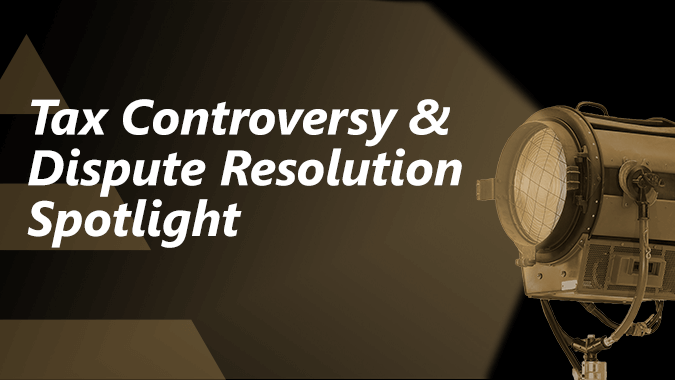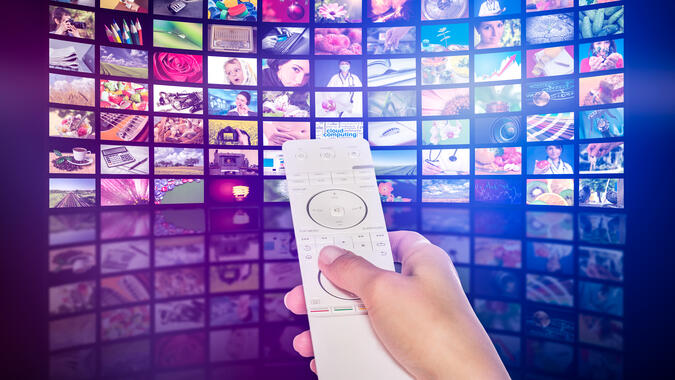
A Conversation with Dan Hood from Accounting Today
- Published
- Mar 25, 2019
- Share
In this EisnerAmper podcast, we talk with one of the leading journalists currently covering the accounting profession, Dan Hood, Editor-in-Chief of Accounting Today. Dan tells us about what today’s successful content model looks like, if the perception of “fake news” is impacting professional publications, one of his most interesting interviews, and more.
Transcript
Dave Plaskow: Hello and welcome to EisnerAmper’s podcast series. We're always interested in the latest trends and developments, as well as any related business and accounting opportunities and challenges. I'm your host, Dave Plaskow. Today we're going to mix it up a little bit. We usually have the thought leaders in accounting and business advisory, but today we're going to talk to one of the foremost accounting journalists out there. We're talking to Dan Hood, the editor-in-chief of Accounting Today. Dan, welcome and thanks for being here. Tell our listeners a little bit about yourself and what Accounting Today is up to.
Dan Hood: Sure. Well, I've been with Accounting Today for 24 years. Started in the mid- to late-1990s. I’ve been editor-in-chief since 2012 and before that I was managing editor. So I've been covering the accounting profession for a good long time. Before that, I worked for the Wall Street Journal European edition. I've been working with financials of some kind or another for almost 30 years. In terms of what Accounting Today is up to right now, basically we're just trying to keep up. There's just so much change going on in the profession and the broader economy as a whole obviously, but just the accounting profession, that's tremendous. There's so much going on in so many different areas of the accounting, which is great for us. It gives us plenty to cover, a lot of exciting things to write about, but it also means that were sort of desperately scrambling at all times to make sure that we're covering everything that you cover because there's so much going on.
DP: Sure. Content is king.
DH: Yeah, there's no shortage of it. And that's the other thing I try to do at the same time as trying to keep up with all the things we need to cover, in terms of the profession. We're also got to keep up with all the changes that are going on in publishing in our industry. Just moving away from print and the huge number of new outlets and stuff. We're just trying to keep up with that.
DP: It's no secret that accounting professionals get bombarded daily with client communications, rules and regs, CPE information, industry events. What does a successful content model look like today?
DH: Well, it's interesting because I think there's no single model. The main thing is just to be wherever your audience is, whatever they want, however they want to get information. From clients, from the technical stuff, the latest rules and regs to much more touchy-feely sort of stuff. How do you recruit and retain staff and how do you build soft skills? There's all kinds of technological information, all that different stuff. You really want to be able to get it to your audience. How do they want to get it? If they like podcasts, give them podcasts. If they like video, give them videos. If they like short articles, give them short articles, whatever the case may be. You've got to find ways to take what in many cases is the same information and set it out in whatever way works best for them. The same is true for accountants that are doing this. You might say content is king and everybody has become a content producer, which is one of the reasons why we have so much information out there. And you need to make sure that you're delivering it exactly the way your audience wants it. Whether for us its accountants, public practice, we're trying to reach an accounting firm or everybody. Anybody else in professional services, you're trying to reach your clients. You want to find the ways that work best for them. Often, like I said, that means pursuing a bunch of different content models. It can be from audio to video to text to whatever the case may be, live events, however it takes to get that information. That's what the content model looks like and it changes fairly regularly, so you need to stay on top of new ways to get information out there, new ways that your audience is looking at it, new ways that they're trying to consume that sort of information. It really is just keeping abreast of where your audience is, what they want and how they want to consume and just staying there. Staying at the forefront of that is what the success model looks like. I can't tell you what the individual elements of it are, because it really depends on the audience and the moment in time.
DP: Sure. Now we definitely live in a Twitter world where people tend to have shorter attention spans. Hence there's a preference for shorter content, but do you still find a place for long-form content, loner articles, studies, white papers and so on?
DH: Yes, to a certain extent. I wonder how much of an appetite for that there ever was. It begs the question of did people used to have an appetite for long-form content? I think to a certain extent that was driven by the fact that the people who produce long-form content are the people who really like it. Journalists really love to write a 5,000, 10,000 word story. They love to read one that's really well written and really well put together. The people who can put together a great white paper that analyzes an important issue, they're exactly the kind of people who want to read that sort of thing. For a long time I think they sort of said, well this is what everybody should reading because everybody loves this kind of thing. We weren't really able to measure engagement with different forms of editorial for a long time. We didn't have the tools we have now that allow us to look in and say, wow, people really don't like, or a lot of people aren't reading these long articles They are going for the short stuff, they're going for the slide shows, the short video, short audio pieces. I'm not sure that that's a change. I think we just started to measure people's consumption of all that. I will say that it seems like there's less of an appetite for it. Not diminishing, not no appetite, but less of an appetite. I'm not sure if that's truly less. We finally started to measure it that all along there's only been a select group of people who really appreciate that sort of stuff. That said, I do think there is an appetite for longer form stuff. It's just not as big as we might think it would be.
DP: Now, another element of the zeitgeist I would say is this era of fake news. Do you think this translates to professional publications? I mean it's obviously in the consumer realm now, but are readers of professional and industry publications more skeptical of what they're reading today?
DH: I don't think they are. I think some of that fake news, fortunately, for people in trade publications like ours hasn’t translated as much for us. In the sense of the fake news is really look at it an article or whatever it be, whether it's print or audio or video, whatever it is, and say, well, if it doesn't agree with what I say, it's fake, that if it doesn't agree with what I believe then it's fake, on both sides of the aisle. I don't think that has translated to trade publications very much. There's a little bit of it, but not very much and I think that it's interesting because you talk about skeptical and that really ideally people should always be skeptical, skeptical of anything they read. Whether it’s mainstream publication or not. People should approach literally anything a little bit skeptically and think about it. Where are the sources, what's the other side? Is there another side? Who are they talking to? Do they have any kind of agenda? We would hope that people are a little bit skeptical. And I would say covering accounting, we're pretty lucky in that our audience has always sort of been a little skeptical. They want to prove that this is for sure a real thing. We always sort of felt like our audience was, I don't want to say skeptical of us, but they are skeptical of everything. It’s a proper approach for accountant or an auditor have to say, where's this information coming from what does it mean? They have not, however, adopted that black and white, yes or no. If it agrees with me, it's true. If it doesn't agree with what I think that it's absolutely fake. We haven't seen that. What we have seen though is a continued sort of skepticism with our audience. It's about everything, but an appropriate, healthy sort of professional skepticism and that helps us a lot. I think to a certain extent, it keeps us honest and keeps us on our toes.
DP: Particularly for an audience that's very quantitatively based.
DH: Absolutely. If you prove it, then prove it with numbers. If you have them bring them out, and if you don't then you should. If you should have numbers, if there are numbers available and you don't present them, then they're definitely like, why don't you have them? Why aren't you showing it? I like to think that we've taken on that lesson and it's made us a better publication so we appreciate it when the audience looks at it that way and approaches it, like I said, with that sort of healthy skepticism. What we would hate to see and haven't yet is that sort of fake news attitude that's sort of taken over consumer publications a lot.
DP: Let's turn our attention to social media. It's had some challenges lately. Most notably in the area of privacy concerns. Do you see one platform that's positioned to break away from the pack? Are we going to see some big names today be the MySpace of tomorrow?
DH: MySpace. I love MySpace. I haven't seen anything myself that makes me go wow, that's the next big thing or the next platform everyone's going to be on. We hear, interestingly, we hear a lot about LinkedIn. I don't really think of LinkedIn as a social media platform, but it is really in its way. We're seeing, particularly for a professional communication of one kind of another, a lot of potential there that hasn't really yet reached any kind of peak. But we're definitely seeing a lot of movement that way. We don't see a lot of tremendous engagement through Twitter. We don't see a lot of tremendous engagement through Facebook, which it’s not negligible, but it's not enough that you go, wow, that's a real superstar place to be. And again, I'm speaking strictly from a sort of professional business point of view as opposed to a more consumer oriented one. We are a lot more on LinkedIn. It's interesting, there is an enormous community of accountants on LinkedIn. The numbers have changed since we looked deeply in a couple of years ago, but, accounting was definitely one of what they considered as a sort of super community within the LinkedIn space. There were a huge number of accountants, way more accountants, a disproportionate number of accountants compared to some other professions. So that's a particularly great place if you want to reach accountants or talk to accountants or network with other accountants. We're seeing a lot more people become more savvy in how to use LinkedIn in terms of promoting both themselves and their firms and their practices or whatever the case may be. I wouldn't call it a breakout star, but it's gotten more potential for a business and professional purposes than a lot of others.
DP: I agree with you wholeheartedly on that. I'm a big fan of LinkedIn. I think there's a lot that can be done there.
DH: LinkedIn is getting better at figuring out ways to help users use it better and to promote it better and people are getting better at using it.
DP:I think they're starting to, if I'm not mistaken, bring more content and editorial people on board so that'll definitely help. Well, let's turn to your publication for a second, Accounting Today. I read you did a big spread on cannabis. I'm just wondering, do you guys think that this is the real deal or is it the Bitcoin of 2009?
DH: That’s a strong statement, comparing anything to bitcoin. No, I think it is the real deal. It’s a question of how big of a real deal is it. There's much more of an appetite for legalization across the country, in parts of the country that you would never expect to see an openness to legalization. Even when you think of all the states that don't have it yet. As they approach legalization, and I think we'll see over the next four to five years, maybe a reach a point where the entire country is legalized. Each one of them adds an enormous new market. Particularly for accountants, that's a huge opportunity because the tax implications and the business implications are so complex. The situation is so complex that they really do have a tremendous need for accounting services. I think it's going to grow. I think you reach a point where you say, how big will it actually be once it's fully legalized across the country? How big of an opportunity is that? How big is that market? It's difficult to tell because so much of the current market is illegal and somewhat immeasurable. I can't imagine it not being a tremendous opportunity for businesses, but also for accountants to get involved with it. The thing I took away most from the article, apart from the sort of general trend toward broader legalization, was the huge infrastructure and ecosystem that gets built out around it. You think of it's dispensaries and edibles, maybe, and growers and that's it. But then there's just a huge supply chain of people involved, from lights to real estate to transportation to all these different, other ancillary businesses that spring up or that allow other previously established businesses to grow by providing services like cannabis. I think it’s a tremendous opportunity. I don’t know how big it is in terms of actual numbers. Like I said, it's difficult to figure that out. In the end, it's an area that everybody should be looking at. Accountants should be looking at it. It's going to be a tremendous investment opportunity for a lot of people. Similarly, you know, getting into cybersecurity, IT services, those may be larger broad scale opportunities for accountants. I think the cannabis market is definitely a big industry, and it's going to be one that a lot of accountants are going to want to look at.
DP:Yeah. I think it's going to be completely different, let's say two years from today than it is, just the landscape and the commerce that's behind it. It should be interesting to see.
DH: You’re right about that. The change that's coming, and particularly if you want to get into a different accounting firm that wants to get involved with it, the earlier is better. Get involved or be on top of those changes in order to be on the ground floor.
DP:As a writer or editor, there's always that rush when you get a good subject to interview, a good “get” as they say in the business. Who was your best “get,” your most memorable interview?
DH: We had a weekend, and I'm still not sure exactly how we managed this, but we got an hour or so with the then commissioner of the IRS, John Koskinen, and this was the height of when Congress was coming after him. There was some problems with a certain officers of the IRS had been targeting or seem to have been targeting conservative groups. So there was a lot of fire being directed to the IRS and clearly they wanted to get their word out. It was pretty impressive to see. The IRS Commissioner doesn't often do a lot of press, or at least certainly not trade press. So that he was willing to give us an hour was really tremendous and the insights just from talking to somebody who's got that level of experience, it's really tremendous. One of the things I love about covering the accounting profession is that almost everybody you talk to in accounting is super passionate about the business, super passionate about what they do. So they’re always sort of exciting. I mean that was a particularly special one for us just because at that time he was an even harder “get” than normal. Normally it would be very difficult. The IRS commissioner wouldn’t possibly want to talk to us. He's busy fighting Congress, but he gave us an hour and really opened up and it was great.
DP: Nice. Well, Dan, I enjoyed our time together and I thank you for your expertise and your insight. And thank you for listening to EisnerAmper’s podcast series. Visit eisneramper.com for more information on this and a host of other topics. And join us for our next EisnerAmper podcast when we get down to business.
Also Available On
What's on Your Mind?
Start a conversation with David











